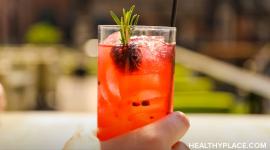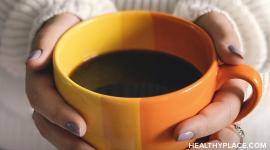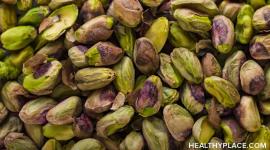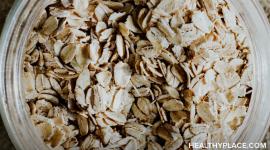Do Foods Play a Role in Anxiety and Panic Attacks?
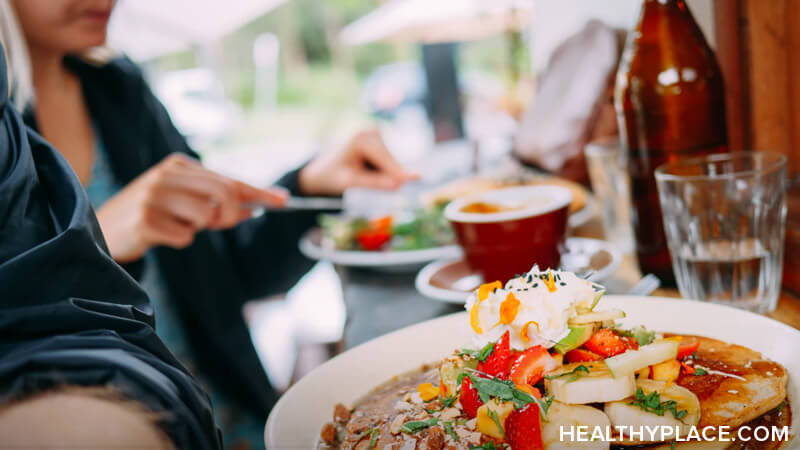
Foods play a big role in anxiety and panic attacks. While these experiences are complex with multiple contributing factors, they do have a significant physiological role. This brain-based component of panic is driven largely by nutrition. Research demonstrates the indisputable fact that foods play a role in anxiety and panic attacks.
The Role of Foods in Anxiety and Panic Attacks
Dr. Fernando Gomez-Pinilla is a researcher at the UCLA School of Medicine and works in the departments of neurosurgery and physiological sciences. He sees firsthand how important a role foods play in anxiety and panic attacks.
Says Dr. Gomez-Pinilla, “Newly described influences of dietary factors… have revealed some of the vital mechanisms that are responsible for the action of diet on brain health and mental function.”
To a large degree, we are what we eat. As food is digested, the body extracts the important molecular components and distributes them via the bloodstream to the brain. The materials that the brain needs to operate correctly and well come from the foods we eat; therefore, our experiences with brain-based anxiety and panic attacks are related to our nutrition.
Two very important conditions are needed by the brain to prevent anxiety and panic attacks:
- Stable blood sugar levels
- Production of calming neurotransmitters like serotonin
Blood sugar management happens through proper diet. Eating simple carbohydrates—refined and processed sugars—destabilizes our blood glucose levels, causing them to rapidly spike then crash. We can stabilize the ups and downs of the blood sugar roller coaster by consuming complex carbohydrates. They digest more slowly and steadily, creating a steady stream of nutrients and energy to the brain.
Another contributing factor to anxiety and panic attacks is insufficient neurotransmitters such as serotonin. Serotonin is known as a calming neurotransmitter, and a lack of this chemical is associated with anxiety and panic attacks. The brain makes its serotonin using the amino acid tryptophan as well as nutrients found in complex carbohydrates. Where does it obtain its supply? From the foods we eat, in this case, proteins.
Eating calming foods for anxiety and panic attacks that stabilize blood sugar and supply proteins to produce neurotransmitters is essential for living anxiety- and panic-free. Let’s take a closer look at foods for anxiety attacks.
Foods That Play a Role in Anxiety and Panic Attacks
To promote brain health and decrease anxiety and panic, seek foods that stabilize blood glucose levels and facilitate the production of calming neurochemicals. Think in terms of balance. Rather than looking for one super-nutrient that the latest craze says is an instant anxiety cure, go for a daily nutritious diet that will reliably provide the brain what it needs so you can reduce panic long-term.
Great sources of nutrients and the best foods for anxiety and panic attacks include:
- Complex carbohydrates
- Dairy
- Fruits and vegetables
- Fatty fish and lean meats
- Water (for sufficient hydration)
Foods play a role in reducing anxiety and panic attacks. Conversely, they can play a role in initiating and sustaining them. Your brain must work with what you feed it, and there are certain foods and beverages that either overstimulate the brain or rob it of nutrients so it can’t work properly.
Some such foods that play a contributing role in anxiety and panic attacks are
- Caffeine (caffeine-induced anxiety is real)
- Processed foods
- Simple carbohydrates
Together, anxiety-triggering foods cause blood sugar to fluctuate erratically, spiking and crashing in a cycle that leads to an anxious brain. Harmful foods also block the production of calming neurotransmitters that would otherwise minimize anxiety and panic attacks.
What you eat and don’t eat, then, is connected to anxiety and panic. However, it’s not just what you eat but how you eat it.
How You Eat Impacts Anxiety and Panic Attacks
Like the type of food you eat, how you eat affects both your blood sugar levels and the brain’s production of neurotransmitters. The brain must have a regular stream of the right nutrients. Your eating habits can contribute to or detract from your brain’s nourishment.
Consider these dos and don’ts:
Do:
- Eat regular meals, small meals eaten frequently are helpful
- Create structure so you avoid grabbing chips and other junk food here and there when you feel hungry
- Opt for quality nutrition: complex carbs, protein, produce, nuts and seeds, Omega-3 Fatty Acids
- Create rituals so you are calm and relaxed when you eat; always being on the go can increase anxiety and panic attacks
Don’t:
- Skip meals
- Use fad diets that advocate extremes (for example, diets that restrict carbohydrates and increase protein are shown to harm physical and mental health, including increased anxiety and panic attacks)
The role of foods in anxiety and panic attacks is significant. The healthier and more wholesome you eat, the more stable your blood sugar will be and the more able your brain will be able to produce the necessary calming neurochemicals. Make gradual dietary adjustments and watch your anxiety and panic improve over time.
APA Reference
Peterson, T.
(2021, December 21). Do Foods Play a Role in Anxiety and Panic Attacks?, HealthyPlace. Retrieved
on 2026, March 4 from https://www.healthyplace.com/anxiety/food-and-anxiety/do-foods-play-a-role-in-anxiety-and-panic-attacks
